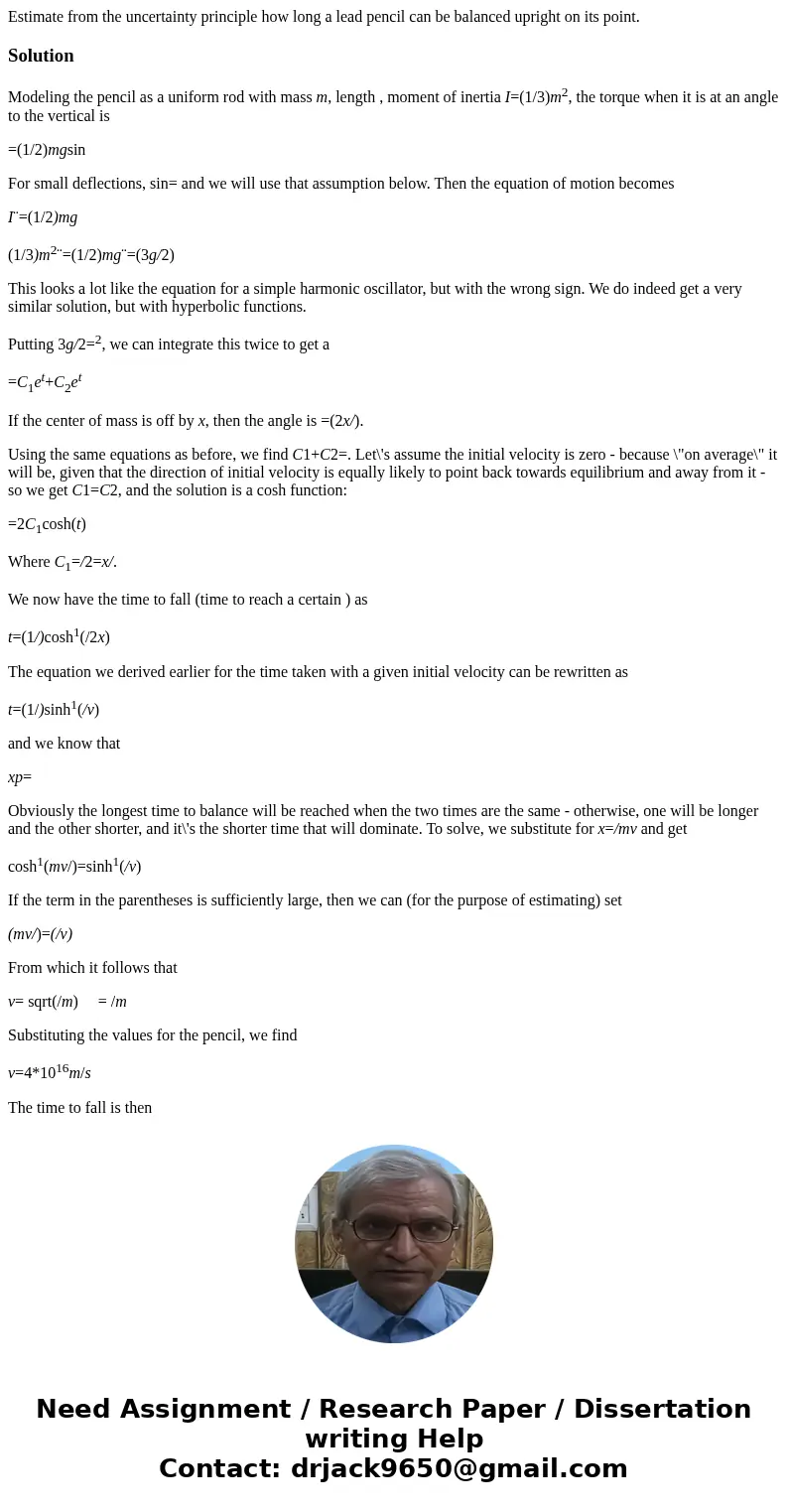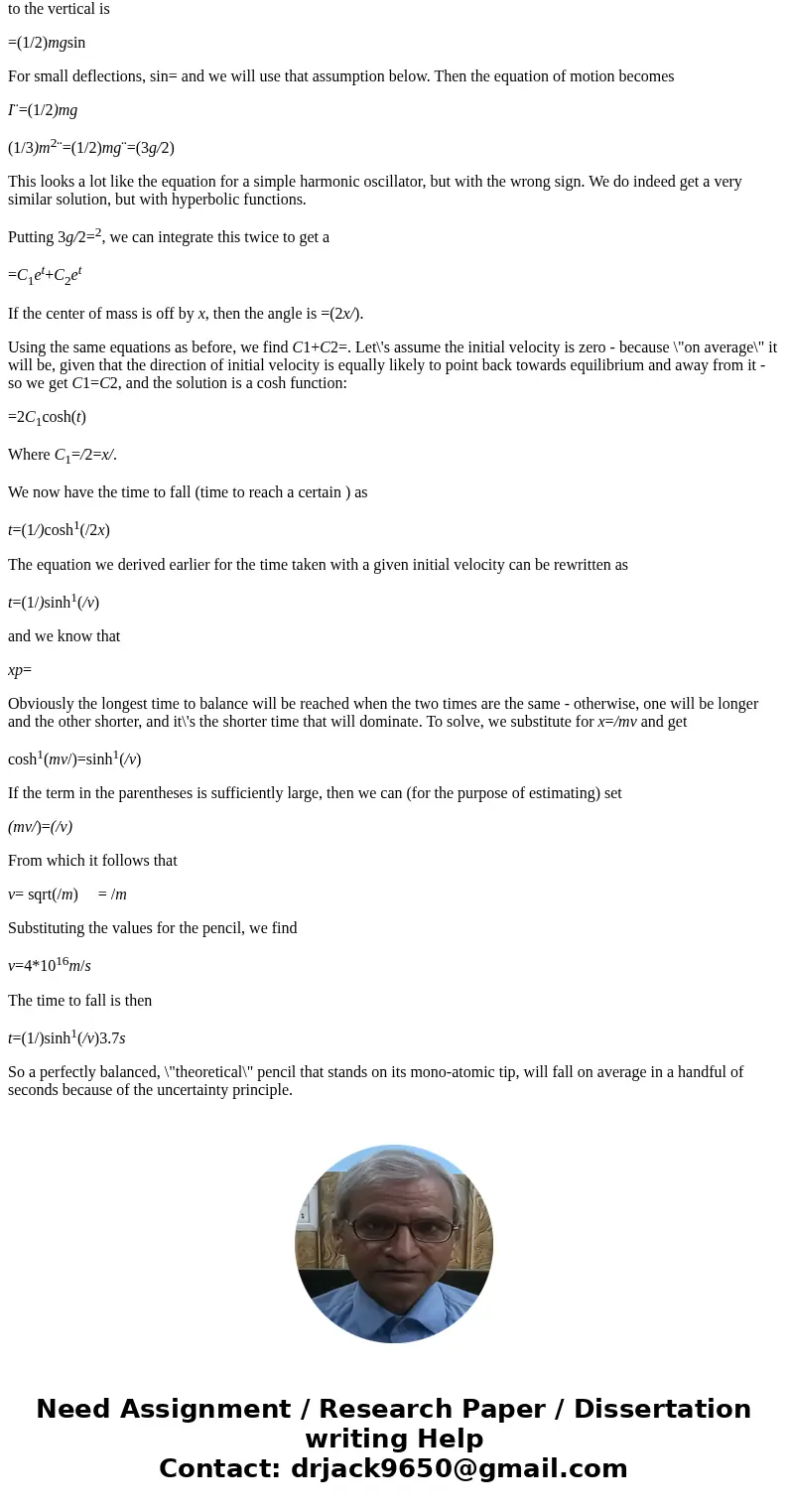Estimate from the uncertainty principle how long a lead penc
Solution
Modeling the pencil as a uniform rod with mass m, length , moment of inertia I=(1/3)m2, the torque when it is at an angle to the vertical is
=(1/2)mgsin
For small deflections, sin= and we will use that assumption below. Then the equation of motion becomes
I¨=(1/2)mg
(1/3)m2¨=(1/2)mg¨=(3g/2)
This looks a lot like the equation for a simple harmonic oscillator, but with the wrong sign. We do indeed get a very similar solution, but with hyperbolic functions.
Putting 3g/2=2, we can integrate this twice to get a
=C1et+C2et
If the center of mass is off by x, then the angle is =(2x/).
Using the same equations as before, we find C1+C2=. Let\'s assume the initial velocity is zero - because \"on average\" it will be, given that the direction of initial velocity is equally likely to point back towards equilibrium and away from it - so we get C1=C2, and the solution is a cosh function:
=2C1cosh(t)
Where C1=/2=x/.
We now have the time to fall (time to reach a certain ) as
t=(1/)cosh1(/2x)
The equation we derived earlier for the time taken with a given initial velocity can be rewritten as
t=(1/)sinh1(/v)
and we know that
xp=
Obviously the longest time to balance will be reached when the two times are the same - otherwise, one will be longer and the other shorter, and it\'s the shorter time that will dominate. To solve, we substitute for x=/mv and get
cosh1(mv/)=sinh1(/v)
If the term in the parentheses is sufficiently large, then we can (for the purpose of estimating) set
(mv/)=(/v)
From which it follows that
v= sqrt(/m) = /m
Substituting the values for the pencil, we find
v=4*1016m/s
The time to fall is then
t=(1/)sinh1(/v)3.7s
So a perfectly balanced, \"theoretical\" pencil that stands on its mono-atomic tip, will fall on average in a handful of seconds because of the uncertainty principle.


 Homework Sourse
Homework Sourse